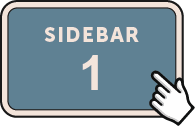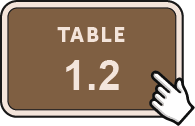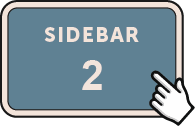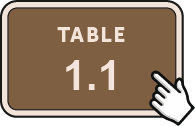Show Navigation Menu
Section One : Foundations of Doctoral Study
Chapter 1: Welcome to the Doctoral Journey
Introduction | Program Overview | Worldview | Conclusion | References
Hide Navigation Menu
Home Page
Section 1 Foundations of Doctoral Study / Chapter 1 Welcome to the Doctoral Journey
2. Program Overview
An important next step to take in the doctoral journey will be to answer a couple of questions: What is it like to pursue a doctoral degree? What will happen in the next three to four years? Learners' enrollment counselors have outlined several key aspects of the journey, and this text will expand on the helpful information and advice they provided.
In making a decision to pursue a doctorate, learners may have asked people they know who already have their doctoral degree about the experience. A typical answer might have gone something like this: “Well, I finished all my course work and was pretty excited about that. Then I got a letter from the university that congratulated me on completing my course work and told me that all I had left to do was write my dissertation. I had no idea what I was going to research, much less how to write it! I didn’t know where to begin. The joy of being finished with my course work was quickly replaced with being scared to death!”
This is an oft-repeated experience of people who received their doctoral degrees in traditional doctoral programs. At Grand Canyon University, the doctoral learners' experience will be substantially different. Learners will begin thinking and talking about their dissertation in their first course. They will be encouraged to begin gathering literature that will form the foundation of their dissertation research study. By the end of the first year of course work, learners should have at least an idea about what broad-based area they would like to research by answering 10 strategic questions about it. By the close of the second year, learners should have focused their area enough so they can present their project formally in a prospectus. Along the way, instructors will welcome conversation with learners about their areas of interest and how those areas might be studied. Instructors also will provide learners with exercises and assignments that will develop their research skills. The dissertation will be woven through the entire doctoral program, not delayed until the end.
People sometimes talk about going back to school to continue their education. In the case of pursuing a doctoral degree, this is true on one level and untrue on another. Yes, doctoral learners do go back to school, and, yes, they do continue their education; however, using the word continue suggests that a doctoral education merely continues what happened while working to earn a master's degree. A doctoral education is completely different from a master's program in which students are expected to read what scholars have discovered and written on a certain subject and then report what was said. In a doctoral program, learners are expected to read what other scholars have discovered and written and use that to guide their own discovery and research. Along the doctoral journey, learners will be enriching and developing their ability to know broadly, think deeply, and act wisely.
When learners complete their degree, they will be the academic professionals writing the studies and journal articles that other students will read and use to discover their own new knowledge. Standing at the doorway of a new experience like that can be a bit frightening. To help through the challenges of the program, doctoral learners will have their enrollment counselors, student advisors, faculty, dissertation committee, and college staff to provide guidance as they make their way through the doctoral program.
Doctoral Perspective
Grand Canyon University offers a Doctor of Education (EdD) degree, a Doctor of Philosophy (PhD) degree, and a Doctor of Business Administration (DBA) degree. The EdD and PhD degree programs also have emphases. The difference between the three doctoral programs is a matter of perspective. First, they differ by degree type. The EdD is often considered a more practitioner-based degree. That is, its research and scholarship are usually focused around making changes or taking action vs. knowledge creation. The PhD is more of a scholarly degree. That is, its research is more focused around knowledge creation rather than making changes or taking action. But they are not that different. Both degrees involve action/change and knowledge creation. It is more of a question of priority and focus. So we often say the EdD learners are Practitioner/Scholars while the PhD learners are Scholar/Practitioners.
Second, they differ by content. The EdD is focused on Organizational Leadership. To be clear, despite having “education” in the title, the EdD is not an education degree in the same way an MEd is. The EdD program does not cover any kind of teaching skills or pedagogy. It is focused on leadership. The EdD designation is tied to the type of degree as discussed above. Courses cover leadership content in various forms and contexts. The PhD is focused on psychology. So courses cover psychology in various forms in contexts. Another important caveat – the PhD is not a clinical degree. It is general psychology knowledge. It does not train learners to be psychologists who works with patients.
The DBA or Doctor of Business Administration describes both its content and type: DBA learners are Practitioner Scholars, and their coursework focuses on Business Administration
The Elephant and the Blind Men fable can be likened to how learners from each doctoral program perceive the same event. Imagine three GCU doctoral learners—an EdD student, a PhD student, and a DBA student—walk into a fourth-grade classroom to observe the class in action. The EdD learner may watch how the teacher guides the class through a decision-making process or how he or she leads the students through an unexpected change in the day’s schedule, which are ways of seeing things through the perspective of leadership. The PhD learner may look at the same events, but, instead, notice how the students process information they hear and see or the steps students take in the learning process, all of which are ways of seeing things through the perspective of psychology. The DBA learner may look to see how the classroom activities are managed. All three will see the same events, but each will have a different description of what took place. Regardless of the degree type, the dissertation process and expectations are the same.
DNA is a “molecule called deoxyribonucleic acid (DNA), which contains the biological instructions that make each species unique" (Deoxyribonucleic Acid (DNA), 2014, para. 2). GCU has developed its own unique DNA structure for each doctoral program to ensure that each program is integrated with critical learning outcomes, research skills, and resources to help doctoral learners successfully complete the program of study with a high-quality dissertation.
The GCU Doctoral DNA website contains information explaining what makes the doctoral program unique as well as much of the information that will be passed to learners during their doctoral journey. Also found on this website are timetables that explain the progression of courses and dissertation work as well as descriptions of the topics and direction of course work, which will evolve as learners make their way through the program. The DNA also has a description of the available support services. As the doctoral journey begins, spending some time perusing the Doctoral DNA website will be time well spent. For more information, watch the Doctoral DNA Walkthrough tutorial.
Getting Ready
Several years ago, the Fram Company had a commercial with a line that became quite popular. The mechanic who was working on a car in the commercial said that when it comes to fixing cars, “You can either pay me now or pay me later.” The point of the commercial was that it is easier and less expensive to pay a mechanic to replace the oil filter as a part of regular maintenance rather than paying the mechanic a substantial amount of money later when the car breaks down and needs major repair because it was not cared for properly.
Preparing for the doctoral journey is much like this commercial. Learners can either prepare now, or they can prepare later, but they will need preparation activities. Preparing for the doctoral journey before the course work begins is easier because learners have more free time now than they will once the courses begin.
There are four things learners should do to prepare for their doctoral journey: look at their calendars and develop a schedule; line up their support groups; refresh their reading and writing skills; and assess their ability to use technology, particularly Microsoft Word. In other words, doctoral learners should pack their bags carefully and make sure that they have their cars serviced in advance of starting their journeys. Being prepared and addressing these areas before the first course begins will enhance the learning experience.
Develop a Schedule
Doctoral course work will take, on average, about 20 hours a week to complete. Therefore, the first preparation task for learners is to find where they will be able to put 20 hours of course work into their weekly calendars. GCU recommends that in that 20-hour commitment, there should be at least one 6- to 8-hour block of uninterrupted, private time. This block will provide doctoral learners with the time needed to read relevant research, organize their thoughts, and express them in writing in a scholarly manner. With that much time needed during the week, it is critical that learners determine what they will adjust or eliminate in their current schedules to create time for their studies.
Doctoral learners often get creative finding 20 hours a week to devote to their studies. One learner began taking public transportation to and from work. He took his readings with him on the train and read during his 45-minute commute. Without adjusting his calendar, he now had 7.5 hours a week to dedicate solely to his doctoral course work. Another learner hired a gardener to do his yard work, which, he said, freed up 2 hours a week for him to dedicate to study. He claims that he still has the gardener several years after graduating, making not doing yard work an unexpected benefit of getting his doctorate.
For others though, creative options such as those are not available. When those without creative options talk about how they found the 20 hours, they tell of difficult conversations they had in which they explained to their children, family, and friends that they needed to attend fewer games, functions, and meetings.
There is no one-size-fits-all way to find the time needed for doctoral studies. Sometimes finding time can be easy, creative, and maybe a bit fun, but often there are difficult decisions to make and difficult conversations to have.
Identify Support Group
When thinking of a support group, most people will quickly identify their family (spouse, children, siblings, and parents) or close friends; however, a doctoral learner's support group may need to extend to include friends and coworkers as well. Having this group of people available is important to the success of a doctoral learner. Learners will need someone to help them get through times of frustration. There will also be times of discovery, and having others to share those discoveries with makes the new knowledge all the better. Long-distance runners know the importance of having people to encourage them at difficult parts of the run. Pursuing a doctoral degree is much the same.
A Culture of Writing Excellence
The College of Doctoral Studies has an ongoing goal of creating and maintaining a culture of writing excellence. When talking to doctoral learners or individuals who may be considering pursuing a doctorate, one may hear them say that they are going back to school to get their doctoral degree. They say that because they may well have been away from the school environment for a while. Being away from the classroom for a while means that some of the school skills, such as critical reading and academic writing, may be a little rusty. Learners in this situation will find that spending some time shaking the dust off their reading and writing skills will be time well spent. A search in Google Scholar on a topic of interest should provide numerous scholarly articles to read. After reading the articles, learners should write brief summaries of the articles and have a friend read their summary for clarity of expression and grammatical correctness. If writing is a struggle, or if grammar skills are rusty, students often find a refresher course at a local community college to be worth the time and effort. These can help learners to get back into the routine of being in school.
Part of writing excellence is formatting one's writing in a particular style. There are several format guidelines: Turabian, Chicago, and Modern Language Association (MLA) are examples of these format guidelines. GCU uses the American Psychological Association (APA) format. It is imperative that all GCU doctoral learners are familiar with applying APA rules to writing scholarly papers for courses and also for the dissertation. GCU recommends that each learner purchase a hard copy of the most current version of the APA manual and keep it on hand at all times.
Computer Skills
A significant portion of doctoral curriculum involves interacting with a computer. Course syllabi, textbooks, and other course materials are available electronically. The Discussion Forum, where learners interact with each other and with their instructors, is an integral part of doctoral courses that is accessed via computer. GCU has an extensive, growing library, a vast majority of which is electronic, with books and journals available in digital format. In addition, using electronic search tools to find research related to a topic learners are studying is essential. Because doctoral learners interact with other doctoral learners, their instructors, course material, and research using computers, being comfortable using computers is a part of the doctoral journey that should not be overlooked.
If learners are comfortable interacting via computer, the next step is to look at their skills with Microsoft Word. Because the majority of the assignments learners will submit in their doctoral courses will be essays, being comfortable with Microsoft Word is essential. In Microsoft Word, doctoral learners must know how to
• format paragraphs and references,
• spell-check their documents,
• double space paragraphs, and
• review documents using the Track Changes function.
Learners who struggle with APA format issues often find that they have difficulty, not with APA format, but rather with getting Microsoft Word to do what APA format requires. Microsoft Word's default settings are somewhat different from APA requirements, so they need to be changed. Such issues can be addressed easily by conducting an Internet search, as numerous websites provide excellent guidance for the steps required to adjust Word’s settings to align with those of APA format.

Along the doctoral journey, learners will be enriching and developing their ability to know broadly, think deeply, and act wisely.

Sidebar 1: 10 Strategic Points
Table 1.1:
Master's Degree vs. Doctoral Degree


Sidebar 2: Elephant and the Blind Men
Learners can either prepare now, or they can prepare later, but they will need preparation activities.
